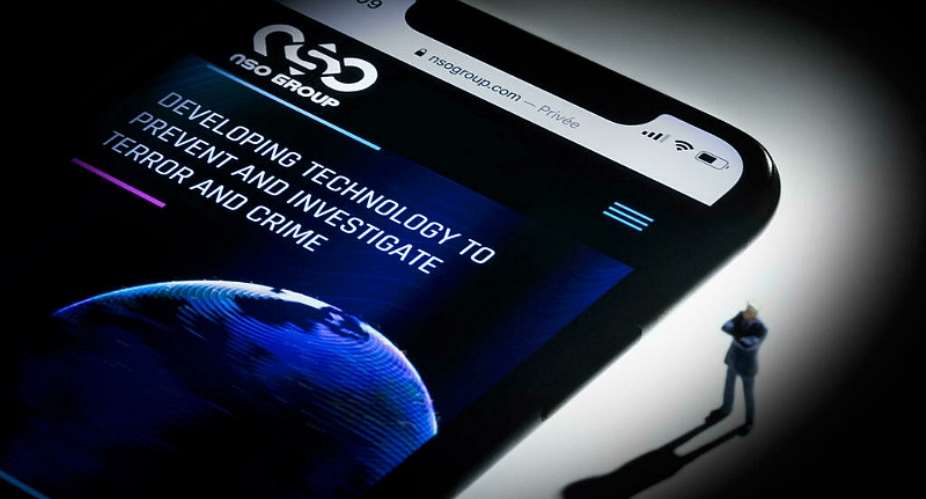Allegations that governments used phone malware supplied by an Israeli firm to spy on journalists, activists and heads of state have "exposed a global human rights crisis," Amnesty International said, asking for a moratorium on the sale and use of surveillance technology.
In a Friday statement, the NGO warned of "the devastating impact of the poorly regulated spyware industry on human rights worldwide."
The NSO Group's Pegasus software -- able to switch on a phone's camera or microphone and harvest its data -- is at the centre of a storm after a list of about 50,000 potential surveillance targets was leaked to rights groups.
Amnesty International and French media non-profit Forbidden Stories collaborated with a clutch of media companies, including The Washington Post, The Guardian and Le Monde, to analyse and publish the list.
French President Emmanuel Macron, who was on the list of alleged targets, had to change his phone and number.
"Not only does it expose the risk and harm to those individuals unlawfully targeted, but also the extremely destabilising consequences on global human rights and the security of the digital environment at large," Agnes Callamard, Amnesty's Secretary General, said in the statement.
Dangerous industry
"This is a dangerous industry that has operated on the edges of legality for too long, and this cannot be allowed to continue," she said.
"Now, we urgently need greater regulation over the cyber surveillance industry, accountability for human rights violations and abuses, and greater oversight over this shadowy industry."
Amnesty called for an immediate moratorium on any export, sale, transfer and use of surveillance technology "until there is a human rights-compliant regulatory framework in place."
"The fact that world and other political leaders themselves may have come into the spyware technology's crosshairs will hopefully serve as a long overdue wake-up call for them and states worldwide to step up and regulate this industry," Callamard said.
The list of alleged targets includes at least 180 journalists, 600 politicians, 85 human rights activists and 65 business leaders.
"Enough is enough"
Meanwhile, in a statement called "enough is enough," the NSO Group calls research done by Forbidden Stories and the media it cooperates with a "well-orchestrated media campaign" and says int will not "play along with the vicious and slanderous campaign." It has decided to refuse to interact with the media.
NSO insists its software is only intended for use in fighting terrorism and other crimes, and that it exports to 45 countries, with approval from the Israeli government. "Any claim that a name in the list is necessarily related to a Pegasus target or Pegasus potential target is erroneous and false," the group says, adding that "will thoroughly investigate any credible proof of misuse of its technologies, as we always had, and will shut down the system where necessary."





 Election 2024: Don’t be complacent, we haven’t won yet – Asiedu Nketia cautions ...
Election 2024: Don’t be complacent, we haven’t won yet – Asiedu Nketia cautions ...
 Election 2024: Stop fighting over positions in Mahama’s next govt – Asiedu Nketi...
Election 2024: Stop fighting over positions in Mahama’s next govt – Asiedu Nketi...
 Prof Jane Naana Opoku-Agyemang will restore dignity of vice presidency – Fifi Kw...
Prof Jane Naana Opoku-Agyemang will restore dignity of vice presidency – Fifi Kw...
 'Ghana beyond aid' has turned out to be 'Ghana without compass' – Naana Opoku-Ag...
'Ghana beyond aid' has turned out to be 'Ghana without compass' – Naana Opoku-Ag...
 Nation builder Mahama will deliver on his promise of a 24-hour economy for the b...
Nation builder Mahama will deliver on his promise of a 24-hour economy for the b...
 Prof Jane Naana is more than qualified to be Ghana’s first vice president and ev...
Prof Jane Naana is more than qualified to be Ghana’s first vice president and ev...
 WENDA petitions Akufo-Addo, Speaker of Parliament to make vote-buying illegal
WENDA petitions Akufo-Addo, Speaker of Parliament to make vote-buying illegal
 Supreme court declares payment of wages to spouses of President, Vice President ...
Supreme court declares payment of wages to spouses of President, Vice President ...
 Publish full KPMG report on SML-GRA contract – Bright Simons to Akufo-Addo
Publish full KPMG report on SML-GRA contract – Bright Simons to Akufo-Addo
 Kumasi International Airport to begin full operations by end of June
Kumasi International Airport to begin full operations by end of June
